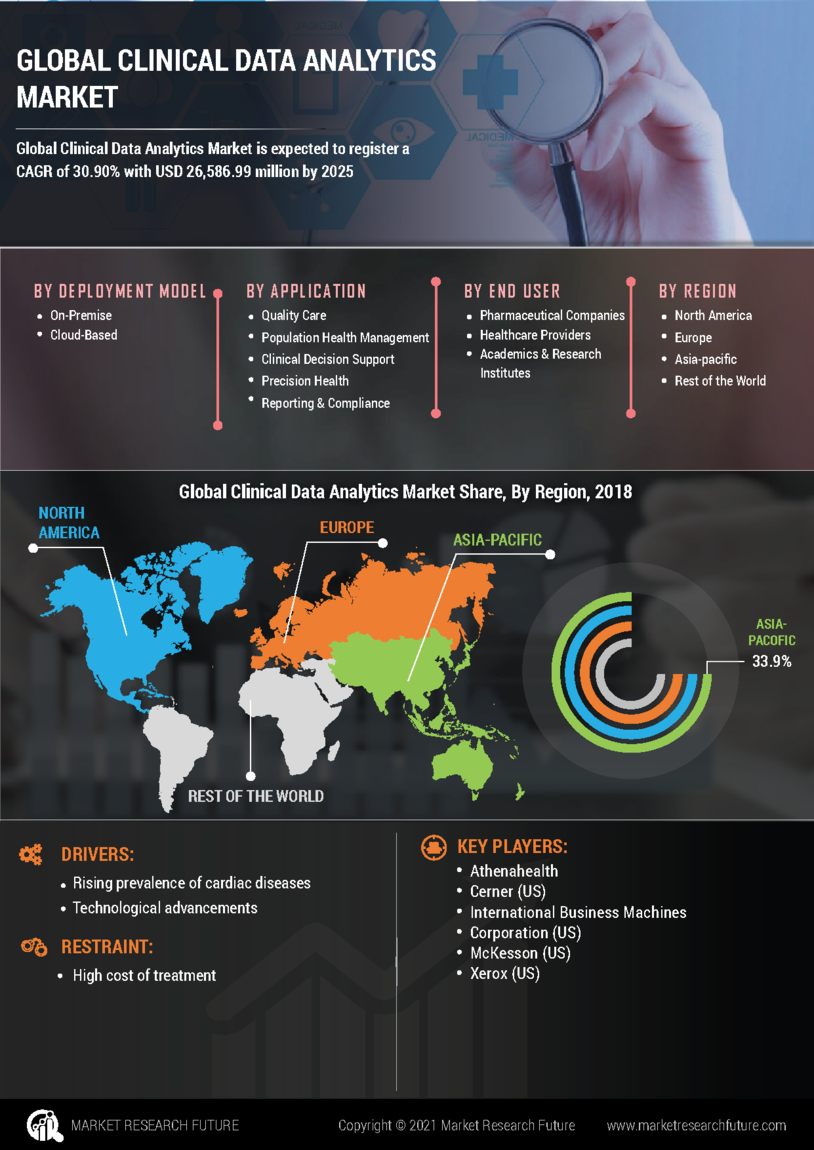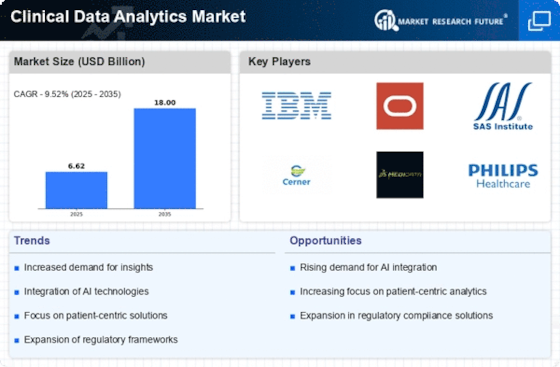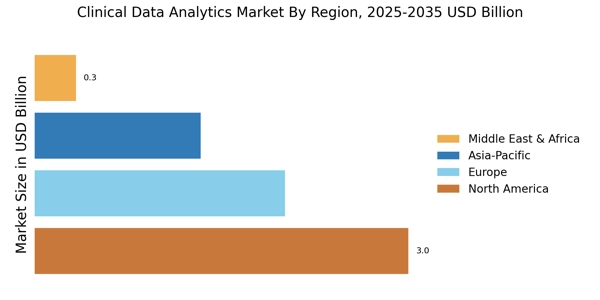Increased Focus on Personalized Medicine
The shift towards personalized medicine is significantly impacting the Clinical Data Analytics Market. As healthcare moves away from a one-size-fits-all approach, the need for tailored treatment plans based on individual patient data becomes paramount. Clinical data analytics plays a vital role in identifying patient-specific factors that influence treatment efficacy. By analyzing genetic, environmental, and lifestyle data, healthcare providers can develop more effective and personalized treatment strategies. This trend is likely to drive the demand for advanced analytics solutions that can handle complex datasets and provide insights into patient populations. The emphasis on personalized medicine is expected to foster innovation within the clinical data analytics market, as stakeholders seek to harness data for improved patient care.
Advancements in Technology and Infrastructure
Technological advancements are significantly influencing the Clinical Data Analytics Market. The integration of sophisticated analytics tools and platforms is enabling healthcare organizations to process and analyze large datasets more efficiently. Innovations such as cloud computing, machine learning, and big data technologies are facilitating the transformation of raw clinical data into actionable insights. As healthcare systems continue to modernize their IT infrastructure, the demand for advanced analytics solutions is expected to rise. This shift not only enhances the capabilities of healthcare providers but also supports the growing need for interoperability among various health information systems. The market is likely to witness an influx of new technologies that further streamline data analytics processes.
Growing Investment in Healthcare IT Solutions
Investment in healthcare IT solutions is a key driver of the Clinical Data Analytics Market. As healthcare organizations recognize the importance of data analytics in enhancing operational efficiency and patient care, they are increasingly allocating resources towards IT infrastructure and analytics tools. This trend is reflected in the rising budgets for health IT, which are projected to reach billions in the coming years. The influx of capital is likely to spur innovation and the development of new analytics solutions tailored to the unique needs of healthcare providers. Additionally, partnerships between technology firms and healthcare organizations are becoming more common, further accelerating the adoption of clinical data analytics solutions. This growing investment landscape is expected to significantly contribute to the expansion of the clinical data analytics market.
Rising Demand for Data-Driven Decision Making
The Clinical Data Analytics Market is experiencing a notable surge in demand for data-driven decision making across healthcare organizations. This trend is largely attributed to the increasing recognition of the value of data in enhancing patient outcomes and operational efficiency. Healthcare providers are increasingly leveraging analytics to derive insights from vast amounts of clinical data, which can lead to improved treatment protocols and resource allocation. According to recent estimates, the market for clinical data analytics is projected to grow at a compound annual growth rate of approximately 25% over the next few years. This growth is indicative of a broader shift towards evidence-based practices, where data analytics plays a crucial role in shaping clinical strategies and policies.
Regulatory Compliance and Quality Improvement Initiatives
Regulatory compliance is a driving force in the Clinical Data Analytics Market, as healthcare organizations strive to meet stringent standards set by governing bodies. The need for compliance with regulations such as HIPAA and GDPR has prompted healthcare providers to invest in robust data analytics solutions that ensure data integrity and security. Furthermore, quality improvement initiatives are increasingly relying on data analytics to monitor performance metrics and patient safety indicators. By utilizing analytics, organizations can identify areas for improvement and implement evidence-based interventions. This focus on compliance and quality is expected to propel the growth of the clinical data analytics market, as organizations seek to enhance their operational frameworks while adhering to regulatory requirements.

















